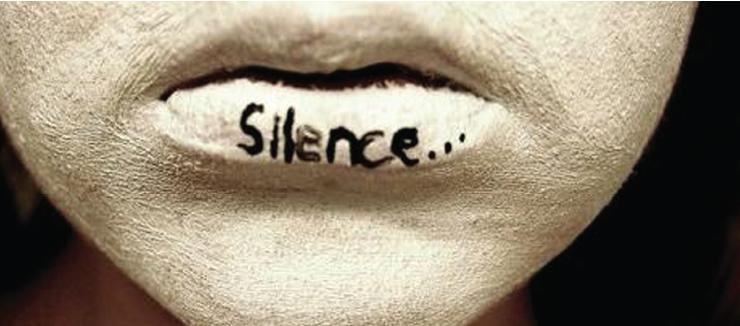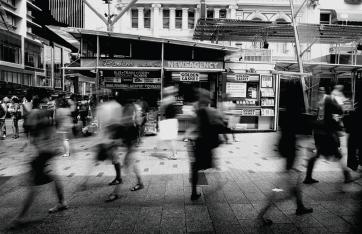
Like the “Subway line 1 woman who spoke rough words to the elderly,” or the “Bundang Line Smoking Woman,” we can easily find the videos of badly-behaving people on the Internet. People who saw the video criticize the person who behaved badly and think that kind of person has no common sense at all. Then, let’s look at the video differently. The people who also appear in the video are just sitting in their seats or taking a video. Actually, no one dissuades person who behaves badly. Then, let’s suppose you are one of the passengers in that case. Are you one who just watches or are you brave?
Where the Word ‘Genovese Syndrome’ is from
Then why do people just sitting at their seat or just looking at the situation? It calls Bystander Effect or Genovese Syndrome. Bystander Effect or Genovese Syndrome is a psychological phenomenon. It refers to how people usually don’t help a person who is in danger when there are a lot of people around.1 When these cases happen, people often act after they watch what other people do. Kitty Genovese’s case is one of the popular cases that can explain how stander effect works. In 1964 in New York City, Genovese was stabbed by a thief and screamed for help. Claims were made that people who lived in the nearby apartments lighted up and saw what appened to her. A newspaper reported that over 30 people who could have helped her or called the police failed to do so. She died resisting to the bitter end and begging for help . Though the number of people and degree to which they witnessed the incident is disputed, the nickname for the syndrome came from this event.2
We can easily find this kind of bystander effect around us. Only 5 months ago, something similar occurred on subway line 7 in Seoul. A man aged 18 molested a middle school girl once on the train and twice at the restroom of the subway station. This is a case that happened on the running train. It means there were people who could report to the police. In reality, that train was filled up with people so that some people were also standing, but no one called the police. Even though there are methods to stop the incident, people are trying not to help, but to just look at it. We call this society as “Bystander Society.”
What Makes People Sit as Spectators
Then what can be the reasons that bystander effect is so rampant in our society?
First of all, people have fear that they also can be another victim after they intervene. Yoon Injin, Professor of Korea University, said, “The direct reason why people ignore the situation that calls for someone’s help is they have fear that they can be harmed. Also, if they helped with good mind, they have no compensation after their help.”3 This happened to the female college student Ms. A on subway line 3 on. May Ms. A called 119 to help an elderly person who was falling at the subway station. However after three weeks passed, she got the call from the person. The old said “How can you go away after you pushed me? And you never inquired after me. If you live like this, you will be punished!” She became an attacker. Ms. A said, “I have no guilt except for helping the elderly because I thought that was an emergency. When I am reminded of that again, I just feel pressure on my heart.” 4 Also Han, Kookmin University, said “A month ago, I helped the person who was in trouble with my friend. After my help, I had to go to the police and write up a statement. At that moment, people can think ‘it is right to help’ but after that, it became some kind of nuisance.”
Also it can be explained by Ringelmann Effect. Ringelmann effect is a phenomenon that occurs when the numbers of team members are increasing, contribution per person decreases. Suppose the maximum power of contribution that one person can make is 100. If the numbers of team members are two, the power of contribution becomes 93. If the numbers of team members are three, the power of contribution becomes 85. If the numbers of team members are eight, the power of contribution becomes 49. As it shows, when the number of witnesses is increasing, the responsibility that one feels decreases. The mind that somebody else will do it, or the sense that there will be no criticism for failing to help occurs with the anonymity which comes from the group. Pyo Changwon, Professor of Korea National Police University, said, “If the number of witnesses becomes numerous, people think, ‘That’s none of my business.’ It makes bystander effect appears more in a crowded city.” 5
Bystander effect can also be explained by the worry about what people think after helping. When one tries to help a person in danger, he or she worries that they will be embarrassed if the situation was nothing. So people do not want to mind the situation which is not directly connected with them. Kim, Division of Business Administration ’12, said, “In Korea, most of people do not like to take action in front of other people. Even in just a class, students hesitate to raise their hand because they worry about how other people might think. I think it will go the same for bystander effect.”

The Medicine that is Given to Bystanders
Then, are bystanders always bad? Some people can think that every person does not want to help others unless he or she can be harmed. However, just ignoring the situation is not humane. Kim Jihee, Department of culture and tourism ’12, said, “Anybody can ignore because it’s none of their business. But small helps like calling the police or 119 can save one life and even decrease the damage the victim got.” Also Jo Sunhwa, 45 years old said, “These days even some parents tell their children, ‘When you see a friend who is bullied, just ignore him,’ because they think their children are the only important kids. It also means they are quite selfish. Then, could we say the society which is filled up with selfishness is the right society?”
There are some things that can change the society from a ‘bystander society’ to a ‘brave society.’
First of all, bystander effect can be eased by smart phones. These days, almost every person has a smart phone. In America, they already invented an app that saves people from bystander effects. The app is called “Quality of Life in Brooklyn.” 6 This app works when someone takes a picture or records the sound of a crime then uploads a picture or a sound. The information from someone goes to the volunteers who have worked as jurists. The volunteers call the police and also it appears through SNS (Social Network System) so that lots of people can know about that crime. An inventor Adams said, “This app can ease the fear that comes from a person who thinks ‘After I call the police, I will be attacked.’” People hope that this app can remove all the factors that made people follow bystander effect. However this app is available only in America. So if an app that can work worldwidely is invented, then smartphone can work as a life vest. Also, the law that punishes bystanders should be changed. In 2010, Lim Donggyu, a member of National Assembly, insisted that in Korea, there should be a Good Samarian Law. A Good Samarian Law punishes the person who did not help even though they were not in danger. Lim said, “Reporting to the police or 119 should be a duty when people are in danger.
Also, the law should be changed so that if bystanders do not help even though there was no danger, they will be given a jail sentence for about 2 years or a fee of more than 3,000,000 won.”7 According to the National Assembly, there are over 31 states in America and over 14 countries in Europe that punish bystanders. However, this law has not been passed yet in Korea. Also, laws should protect people who help. Kwak Taekyung, Professor of Dongguk University said, “Now, there is no set which can back up the people who got damaged while helping a victim. If there is a way to treat a person who got damaged after helping, then bystander effect can be eased.”
Lastly, there should be enough compensation for the person who behaved bravely. To ease the fear that makes bystander effect, something should be given to the people so that it can work as a motive. Lee Byunghoon, a caster of baseball plays, got the Brave Citizen Award. He arrested a criminal who was sexually molesting someone, so he got an award from the police.8 In reality, the amount of the reward is not fixed yet. If that is fixed and noticed to the public, it could be a way to break bystander effect.

Small Power Can Surprise the World
In 2005, there was a touching story that people saved the person who got jammed between the platform and subway train. The subway train reached 33 tons but people moved it with just hands.9 It shows that the power that can save the world is not always big. When we encounter someone who needs help, do not think it’s none of my business, but I can save one life. These days, people feel fear that nowhere is safe even at one’s home. Bystanders, and not only criminals, are partially to blame for this harmful society. To make the world that can live without
worrying about security, we should break out of the bystander society. We should always be reminded of what Irish philosopher Edmund Burke said: “What evil really wants is a silence of justice.”
1 Google Encyclopedia, “Bystander Effect”
2 Wikipedia, “Kitty Genovese”
3 Bae Minuk, “Two Absurd Cases after Goodwill,” NEWSIS, July 14, 2011
4 Same as Footnote 3
5 Song Jihye, “Somebody will Call the Police…Bystander Effect Brought Murder,” Joongangilbo, July 10, 2010
6 Yoo Hyunjin, “The App Invented which Helps Anonymous Notify,” Munhwailbo, August 13, 2012
7 Kim Byumhyun, “Lim Donggue Propelled Good Samarian Law,” Yeonhap News, July 27, 2010
8 Jo Sungwon, “Lee Byunghoon Got the Brave Citizen Award by Arresting a Criminal,” Sports DongA, May 23, 2012
9 Kim Yongtae, “Brave Citizens Moved the Subway Train,” SBS news, December 15, 2005


